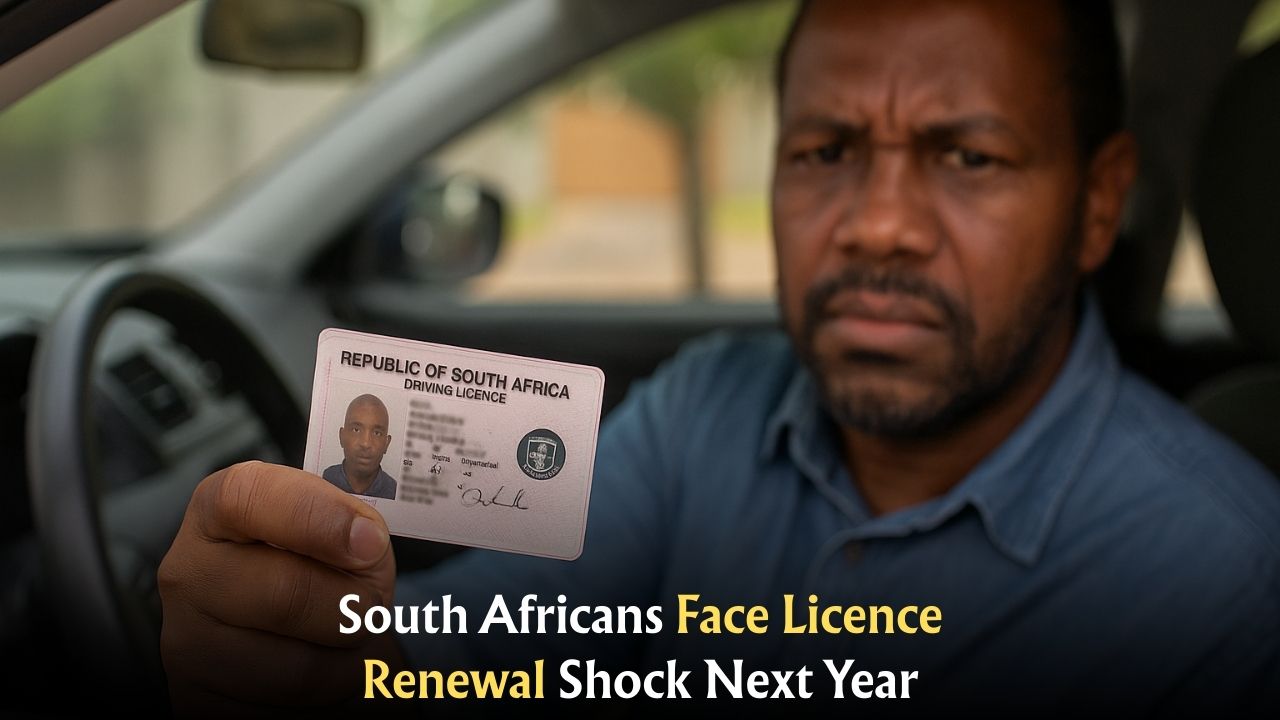Driving Licence Rules – The announcement of new driving licence rules in South Africa for 2025 has brought a wave of concern among motorists. Many drivers fear that the upcoming changes will make it more complicated to keep their licences valid and could also result in additional costs and stricter requirements. Authorities have stated that the reforms are meant to modernize the system, reduce fraud, and ensure that only qualified drivers remain on the road. However, for ordinary South Africans, the transition may not be smooth. The new rules are expected to include tougher renewal procedures, possible biometric verification, and shorter validity periods for certain categories of licences. Drivers are being advised to stay informed and start preparing early so they can avoid last-minute stress when the changes officially come into effect. The shift could also mean longer queues at testing centres, as many people will likely rush to renew before the new regulations kick in.
Major Changes to Driving Licence Renewals
One of the most significant updates coming in 2025 is the change to renewal periods. Currently, many South Africans are used to a five-year cycle, but reports suggest this may be shortened, forcing drivers to renew more frequently. Alongside this, stricter documentation checks and biometric systems are being introduced to prevent identity fraud. While these changes are designed to bring South Africa in line with international standards, they also risk creating extra administrative burdens. For those living in rural or under-served areas, access to testing centres is already a challenge, and these rules could make it even harder to remain compliant. Critics argue that government should first improve efficiency and service delivery before imposing tougher rules on the public. Still, authorities insist that stricter processes will lead to safer roads and more accountability among drivers.
Added Costs and Penalties for Drivers
Another major worry for motorists is the possibility of increased costs tied to the new licence rules. Renewals are expected to come with higher administrative fees, and penalties for late renewals could become stricter. Some experts believe this could disproportionately affect low-income drivers who already struggle with the financial pressures of owning a vehicle. There are also rumours that missed renewals might lead to automatic suspension of licences, meaning drivers would have to undergo testing again. For people who rely on driving for work, such as taxi operators, delivery drivers, and transport workers, these changes could directly impact their livelihoods. While the government argues that the additional funds will help modernize infrastructure and road safety systems, everyday South Africans fear it could just add more financial strain in a tough economic climate.
Impact on Everyday South Africans
For ordinary drivers, these new rules are likely to bring both inconvenience and uncertainty. Long queues at licensing departments, increased paperwork, and the fear of fines or suspension will weigh heavily on motorists. Older drivers, in particular, may face difficulties adjusting to biometric verification or digital record systems. There is also growing frustration that government rollouts of new policies often come with delays, glitches, and poor communication, which could worsen confusion in 2025. Many advocacy groups are already calling for public awareness campaigns to explain the changes clearly and help people prepare. Without adequate support and planning, the reforms may create more frustration than benefits in the short term, even if they are aimed at improving road safety in the long run. Drivers are urged to keep an eye on official announcements and avoid waiting until the last minute to renew their licences under the new system.
Preparing for the 2025 Licence Rules
With changes confirmed for 2025, preparation will be key for all South African drivers. Experts recommend renewing licences ahead of time if possible to avoid last-minute rushes and possible penalties. Motorists should also ensure that all their personal information is up to date, as biometric verification and tighter checks are likely to reject outdated or mismatched details. For those who depend on driving for their livelihood, staying proactive is especially important. Driver training schools, fleet owners, and taxi associations may need to start informing their members about the adjustments now. It’s also expected that online systems will play a bigger role, so becoming familiar with digital renewal platforms could save time later. By planning early and understanding the new requirements, drivers can protect themselves from unnecessary stress and keep their licences valid when the new rules take effect in 2025.
